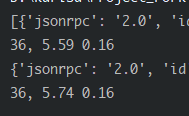"""Translate using deeplpro's dl_session cookie."""
# pylint: disable=broad-exception-caught
import asyncio
import sys
from time import monotonic
from random import randrange
from typing import Union
from concurrent.futures import ThreadPoolExecutor
import httpx
from loadtext import loadtext
COOKIE = "dl_session=81f94b98-497f-4f18-ab79-1ef25076f4c9"
HEADERS = {
"Content-Type": "application/json",
"Cookie": COOKIE,
}
URL = "https://api.deepl.com/jsonrpc"
def deepl_tr(
text: str, source_lang: str = "auto", target_lang: str = ""
) -> Union[dict, Exception]:
"""Translate using deeplpro's dl_session cookie."""
if not source_lang.strip():
source_lang = "auto"
if not target_lang.strip():
target_lang = "zh"
data = {
"jsonrpc": "2.0",
"method": "LMT_handle_texts",
"id": randrange(sys.maxsize),
"params": {
"splitting": "newlines",
"lang": {
"source_lang_user_selected": source_lang,
"target_lang": target_lang,
},
"texts": [
{
"text": text,
"requestAlternatives": 3,
}
],
},
}
try:
_ = httpx.post(URL, json=data, headers=HEADERS)
except Exception as exc:
return exc
try:
jdata = _.json()
except Exception as exc:
return exc
return jdata
async def deepl_tr_async(
text: str, source_lang: str = "auto", target_lang: str = ""
) -> Union[dict, Exception]:
"""Translate using deeplpro's dl_session cookie."""
if not source_lang.strip():
source_lang = "auto"
if not target_lang.strip():
target_lang = "zh"
data = {
"jsonrpc": "2.0",
"method": "LMT_handle_texts",
"id": randrange(sys.maxsize),
"params": {
"splitting": "newlines",
"lang": {
"source_lang_user_selected": source_lang,
"target_lang": target_lang,
},
"texts": [
{
"text": text,
"requestAlternatives": 3,
}
],
},
}
async with httpx.AsyncClient() as client:
try:
_ = await client.post(URL, json=data, headers=HEADERS)
except Exception as exc:
return exc
try:
jdata = _.json()
except Exception as exc:
return exc
return jdata
def main():
"""Run."""
texts = loadtext(r"2024-08-20.txt")
then = monotonic()
# default workers = min(32, (os.cpu_count() or 1) + 4)
# with ThreadPoolExecutor(len(texts)) as executor:
with ThreadPoolExecutor() as executor:
_ = executor.map(deepl_tr, texts)
print(*_)
time_el = monotonic() - then
print(f"{len(texts)}, {time_el:.2f} {time_el / len(texts):.2f}")
async def main_a():
"""Run async."""
texts = loadtext(r"2024-08-20.txt")
then = monotonic()
coros = [deepl_tr_async(text) for text in texts]
_ = await asyncio.gather(*coros)
print(_)
time_el = monotonic() - then
print(f"{len(texts)}, {time_el:.2f} {time_el / len(texts):.2f}")
if __name__ == "__main__":
asyncio.run(main_a())
main()
用一个39段的英文测试,所需时间如下:
异步:

![]()
ThreadPoolExecutor, workers=8

![]()
ThreadPoolExecutor也用 39 个workers 跑过,时间变化不大。
不知道有没有python佬知道怎么解释。
(有兴趣自己试试的网友将loadtext那地方改成任何约40段英文的txt文件就可以了)


